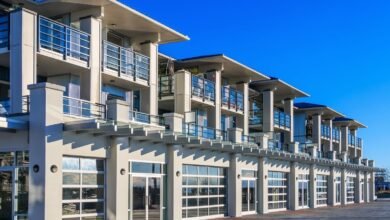CARB Certified vs. Regular Plywood: What You Need to Know

When choosing plywood for your home or commercial projects, understanding the different certifications and standards can make a significant difference in the quality, safety, and durability of your construction. One key certification that stands out is CARB (California Air Resources Board) certification. But what does it mean, and how does CARB-certified plywood compare to regular plywood? This blog will delve into the differences and why choosing the right type of plywood matters.
What is CARB Certification?
CARB certification is a standard established by the California Air Resources Board aimed at reducing formaldehyde emissions in wood products, including plywood. Formaldehyde is a colourless, pungent-smelling gas commonly found in building materials and household products. It can have harmful health effects, including respiratory issues and even cancer, making it a significant concern for consumers.
CARB-compliant plywood is manufactured under strict guidelines to ensure minimal formaldehyde emissions, making it a safer choice for indoor environments. This certification is particularly important for those who prioritize health, safety, and environmental sustainability in their building materials.
Regular Plywood: The Basics
Regular plywood is a versatile and widely used material in construction and furniture making. It is made by glueing together thin layers of wood veneers, with the grain of each layer running in opposite directions for added strength. Plywood is favoured for its durability, resistance to warping, and ease of use. However, the adhesives used in regular plywood can sometimes contain high levels of formaldehyde, especially if the plywood is not CARB-certified.
Key Differences Between CARB Certified and Regular Plywood
- Formaldehyde Emissions:
- CARB-Certified Plywood: This type of plywood adheres to stringent standards that limit the amount of formaldehyde that can be emitted. It is tested and certified to meet the regulations, making it a healthier option for indoor use.
- Regular Plywood: Regular plywood may not meet these stringent emission standards, meaning it could release higher levels of formaldehyde, potentially affecting indoor air quality.
- Health and Safety:
- CARB-Certified Plywood: With its reduced formaldehyde emissions, CARB-certified plywood is safer for indoor environments, particularly in spaces where people spend a lot of time, such as homes, schools, and offices.
- Regular Plywood: While still widely used, regular plywood without CARB certification may pose health risks, especially in poorly ventilated areas.
- Environmental Impact:
- CARB-Certified Plywood: Choosing CARB-certified plywood supports eco-friendly practices, as it complies with regulations designed to protect the environment and public health.
- Regular Plywood: Regular plywood may not adhere to the same environmental standards, potentially contributing to higher levels of indoor pollution.
- Cost Considerations:
- CARB-Certified Plywood: Due to the additional testing and compliance requirements, CARB-certified plywood can be more expensive than regular plywood. However, the added cost is often justified by the health and safety benefits.
- Regular Plywood: Typically, regular plywood is less expensive, making it a more budget-friendly option. However, it’s important to weigh the cost against potential long-term health impacts.
Why Choose CARB Certified Plywood?
When planning a project that involves plywood, whether it’s for cabinetry, furniture, or structural elements, considering the type of plywood you use is crucial. Here are some reasons why you might choose CARB-certified plywood over regular plywood:
- Health Benefits: Lower formaldehyde emissions mean a healthier living environment, reducing the risk of respiratory problems and other health issues.
- Environmental Responsibility: CARB certification aligns with sustainable building practices, contributing to a lower overall environmental impact.
- Quality Assurance: CARB-certified plywood often undergoes more rigorous testing and quality control, ensuring that you’re using a high-quality product.
- Compliance with Regulations: In some regions, particularly in California and other environmentally-conscious areas, using CARB-certified products is not just a preference but a legal requirement.
Read also: From Design to Installation: QA Bathrooms’ Expertise in Fitted Bathroom Solutions
Conclusion
When it comes to choosing between CARB-certified and regular plywood, the decision hinges on your priorities. If health, safety, and environmental responsibility are at the top of your list, CARB-certified plywood is the way to go. Although it may come at a higher cost, the benefits of using a low-emission, high-quality product often outweigh the price difference. Regular plywood, while still useful and cost-effective, may not provide the same level of safety and environmental protection.
In today’s world, where indoor air quality and sustainable building materials are becoming increasingly important, opting for CARB-certified plywood can be a smart, forward-thinking choice for both residential and commercial projects.






